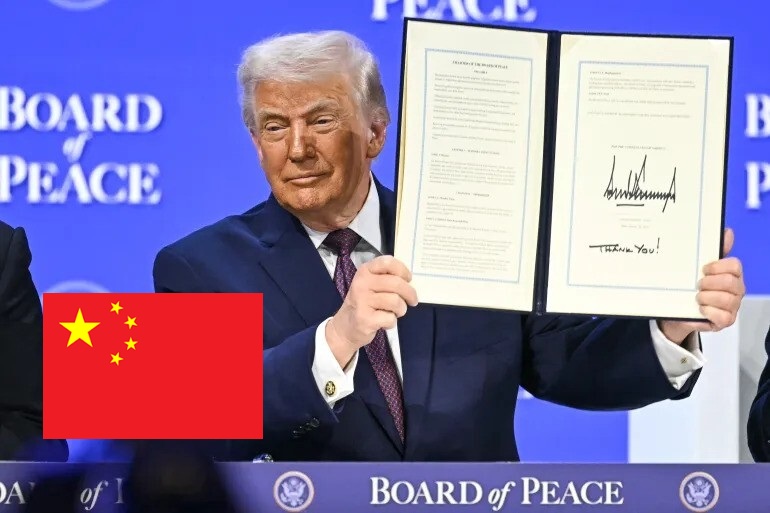“My Thoughts on Taiwan’s Reunification with the Chinese Motherland”, an article published in Pakistani newspapers by H.E. Zhao Shiren, Consul General of the People’s Republic of China in Lahore, offers a lucid and compelling argument on one of the most sensitive geopolitical issues of our time. In an age of contested narratives and polarizing rhetoric, Zhao’s article stands out for its blend of historical depth, legal clarity, and diplomatic nuance. As global tensions rise over Taiwan, Zhao’s piece provides an essential perspective—one grounded in historical continuity, international law, and the growing consensus on the One-China principle.
A Deep Historical Bond
One of the most convincing aspects of Zhao’s argument lies in his comprehensive tracing of Taiwan’s relationship with the Chinese mainland. The reference to early Chinese texts, such as the 3rd-century Seaboard Geographic Gazetteer, and the administrative ties established during the Sui, Song, and Yuan dynasties reveal that Taiwan’s connection with China is not a modern creation but a reality shaped over many centuries.
Zhao’s account of the Qing Dynasty’s declaration of Taiwan as its 20th province in 1885 reinforces the argument that Taiwan was formally administered as Chinese territory well before the modern nation-state era. Moreover, the Chinese defeat of the Dutch colonizers in 1662 by Zheng Chenggong (Koxinga) is a powerful historical example of Chinese resistance to colonial forces trying to disrupt its sovereignty over the island.
International Law and Post-War Agreements
The legal basis for reunification is no less robust. Zhao effectively cites post-World War II agreements such as the 1943 Cairo Declaration and the 1945 Potsdam Proclamation, which explicitly stated that territories stolen by Japan, including Taiwan, were to be restored to China. The Japanese surrender in 1945 was based on these agreements, and Taiwan’s return to Chinese sovereignty was announced by the then Chinese government.
Perhaps most significantly, Zhao invokes the 1971 United Nations General Assembly Resolution 2758, which recognized the People’s Republic of China (PRC) as “the only legitimate representative of China to the United Nations.” This resolution effectively nullified any international legal claim that Taiwan could exist as a separate state within the UN system. Today, 183 countries—including Pakistan—acknowledge and support the One-China principle. This overwhelming consensus cannot be ignored, especially by those who portray the Taiwan issue solely through a Western democratic lens.
Reunification as a Moral and Global Imperative

Zhao goes beyond legal and historical reasoning by presenting reunification as a matter of justice and moral responsibility. He makes a case that restoring national unity is not an act of conquest, but one of healing—a remedy to the forced separation caused by civil war and foreign interference. The author argues that such reunification aligns with the broader global order and strengthens the rules-based international system centered on the UN Charter.
What adds further moral weight to Zhao’s argument is his emphasis on the will of the Chinese people. According to him, the aspirations of 1.4 billion citizens cannot be dismissed in favor of a politically engineered separatist narrative. The Chinese government’s proposal of “peaceful reunification” under the One Country, Two Systems framework offers Taiwan a dignified solution that respects its development model while securing national integrity.
Caution Against External Provocations
Zhao’s op-ed does not shy away from contemporary challenges. He criticizes the Democratic Progressive Party (DPP) in Taiwan for its provocative pursuit of “Taiwan independence” by leveraging foreign alliances—particularly the U.S.—to bypass Beijing and gain recognition. He warns that such moves are not only historically and legally flawed but also destabilizing for the region.
China’s passage of the Anti-Secession Law in 2005, which Zhao references, serves as both a policy instrument and a deterrent. While the author reiterates China’s preference for peaceful reunification, he is equally clear that non-peaceful means remain an option should foreign intervention or separatist activities cross red lines.
Pakistan’s Role: A Model of Diplomatic Consistency
As this article is published in a Pakistani context, it is especially noteworthy that Zhao takes time to appreciate Pakistan’s consistent support for China’s sovereignty. From co-sponsoring UN Resolution 2758 to voicing support in every major bilateral and multilateral platform, Pakistan has upheld the One-China policy with commendable clarity. In today’s fragmented world order, this kind of strategic consistency is rare.
The China-Pakistan Economic Corridor (CPEC), as Zhao rightly mentions, is a testament to the deep and enduring trust between the two countries. This trust, built on mutual respect and shared values of sovereignty and territorial integrity, sets a precedent for how nations can support each other in complex international issues without compromising their own principles.
Taiwan: A Global Flashpoint That Needs Calm Diplomacy
At a time when Taiwan has become a geopolitical flashpoint between major powers, Zhao’s article is a much-needed voice of reason. It counters sensationalist Western narratives that treat the Taiwan issue as a simple conflict between democracy and authoritarianism. Instead, Zhao presents it as a historically rooted, legally sound, and morally driven cause for national unity.
While critics often raise concerns about Taiwan’s current democratic identity and public sentiment, these realities do not negate the foundational facts of history and law. Moreover, as Zhao implies, much of the global South—Africa, Asia, and Latin America—understands and supports the principle of non-interference and national sovereignty, lending moral support to China’s stance.
Final Thoughts
Zhao Shiren’s article is more than just a diplomatic statement—it is a strategic, well-reasoned manifesto that outlines the rationale behind China’s position on Taiwan in a way that is accessible, respectful, and compelling. His approach is balanced: firm on principles, clear on red lines, but hopeful for peaceful resolution.
For readers in Pakistan and beyond, the article serves as a reminder that in a world increasingly governed by short-term alliances and shifting narratives, long-standing commitments to sovereignty, history, and international law still matter. Taiwan’s reunification with China is not just a regional issue; it is a global question of justice, unity, and the future of multilateralism.
~Sabahuddin Qazi



